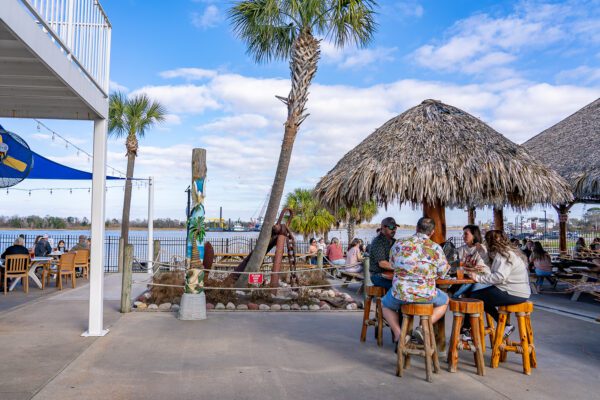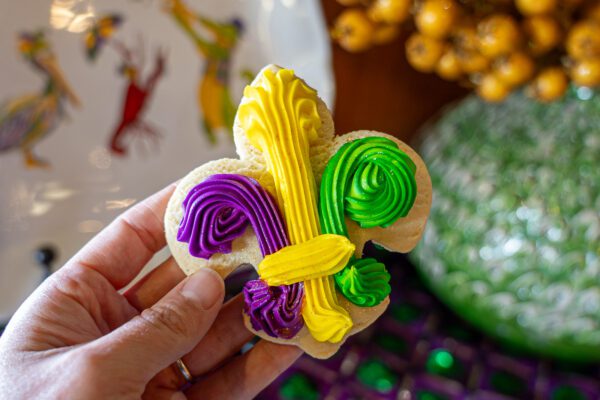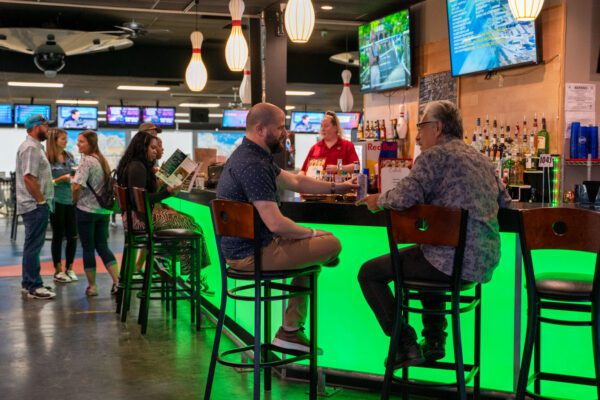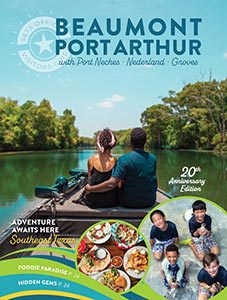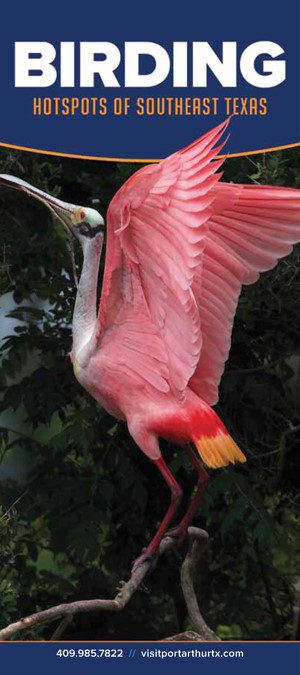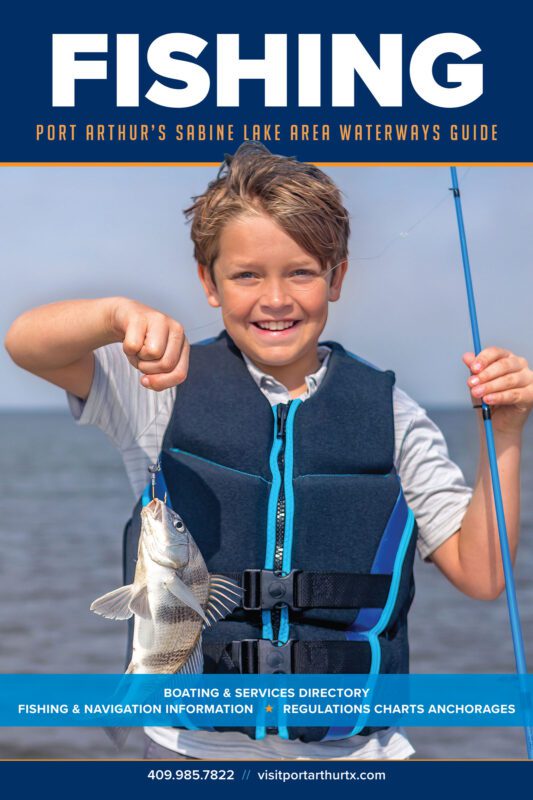How to Speak Cajun
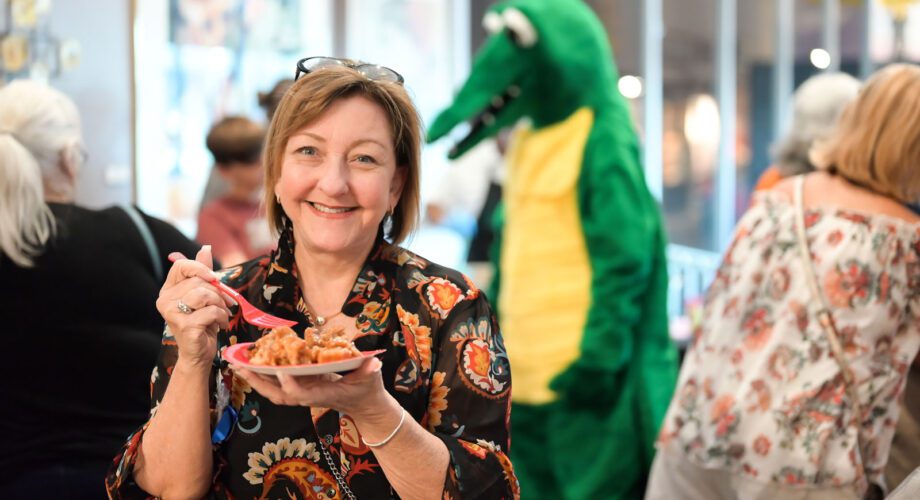
Talk the Cajun Talk
“Port-Are-TURE” is how some folks refer to our coastal city at the Texas-Louisiana border close to Sabine Pass and the Gulf of Mexico. The Cajun culture around here runs deep. After all, we’re the official Cajun Capital of Texas! We say “y’all” and have a southern twang, but you might hear a little Cajun accent as well.
Our favorite author and historian James LaBove along with our CVB staff compiled a list of Basic Cajun Words to Get You By when you visit!
Basic Cajun To Get You By
- Cher [sha]: this Cajun French word refers to a young child, a good friend or close relative. Cher is a term of endearment derived from the French word chere’ [sher-ree] men often use it to refer to a lady love. “Would you like another bowl of gumbo, mon cher?”
- Allons [ah-loh(n)]: Let’s go.
- Merci Beaucoup [mer-ci-bow-coo]: Thank you very much!
- Ça c’est bon [aa say boh(n)]: That’s good.
- Ça va [sa va]: How are you? And, it’s also the response, “I’m well.”
- C’est tout [say too]: That’s all.
- Mais [may]: But. “Mais, yeah!”
Let’s Get to the Food
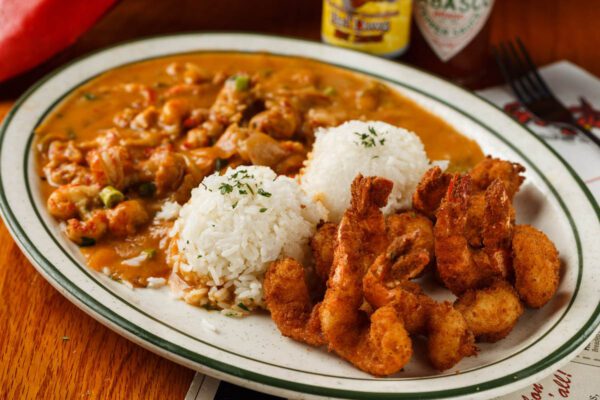
- Boudain/boudin [boo-dan]: links of rice dressing stuffed in casing and we just can’t get enough! Oh, sometimes we fry it into balls. “Boudain continues to be a very popular dish with Cajuns everywhere, especially me,” LaBove says. We’ve got a hangout called The Boudain Hut.
- Etouffee [et-too-faye]: literally means “smothered” buis used anam slightly thicker, roux-based dish. Crawfish or shrimp is usually the single main ingredient. Unlike gumbo which is often focused on two main ingredients (or more than two if made by a nouveaux [novice]) and served as a soup, ettouffe is usually served as an entrée. I have eaten alligator ettouffe so I assume that Cajuns have probably used the ettouffee “treatment” in many alternative ways. Anyone for muskrat ettouffe?
- Gumbo: Gumbo. Lol.
- Chevrette [she-vret]: Shrimp
- Café noir [ca-fae-nuwah]: black coffee or coffee without anything added
- Café au lait [ca-faye-o-laye]: coffee with milk. Some local kids grew up on this.
- File’ [fee-laye]: and the Cajun French word for sassafras leaves ground into a fine powder. Look for bottles of it to sprinkle you your steaming bowl of gumbo.
A Little Lagniappe
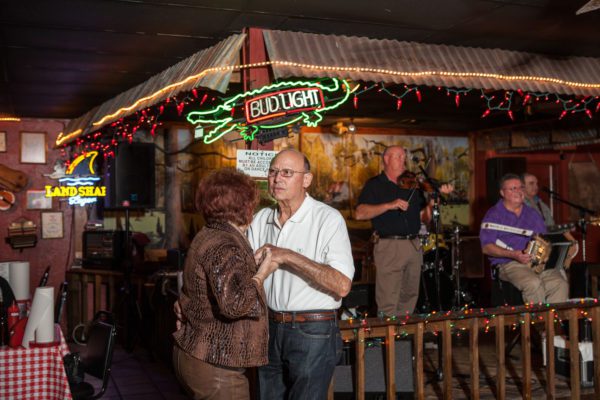
- Lagniappe [lan-yap or lan-yop]: pronunciations depend on how far to the west you were in Louisiana. It means a little something extra, and that’s how we feel about your stay in Port Arthur. How about an extra drive to see the Texas Historical Marker where Janis Joplin used to live? Or maybe visit the the Acadian house in Nederland or La Maison Bosoliel in Port Neches?
- Boucheire [boo-sha-ree]: the name given to a get-to-gather where a pig is butchered, prepared in many ways and shared communally. Today, we just head to our great Cajun restaurants.
- Fais-do-do [faye-doe-doe]: a dance party. Try some moves when you hear some live music at area restaurants.
- Zydeco [zie-de-coe]: a type of Cajun dance music that is a combination of traditional Cajun music, mixed with R&B and African blues.
- Frottoir [froh-twahr]: a washboard or rubboard used as a musical instrument in zydeco and Cajun music.
On the Water
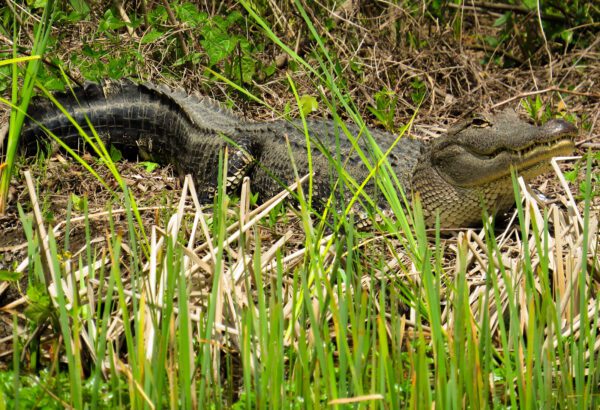
- Cocodrie [co-co-dree]: crocodile in French but used by early Cajuns to mean alligator since at first, they did not know the difference. Smile and say “cocodrie” when you pose for a gator selfie at Museum of the Gulf Coast.
- Poisson rouge [pwasse-sonn-roozge]: redfish. It’s one of the famed fish in Sabine Lake, along with flounder and trout. Ask some of our charter fishing guides to get you to them.
- He’ron bleu [eir-ron-blue]: how we call those elegant, tall blue heron on the edge of the waters. Pleasure Island features many who enjoy watching visitors cast a line.
- Pirogue [pee-rog] by Creole Cajuns and [pee-row] by bayou Cajuns: this is a small, flatbottomed canoe-style boat pointed on each end. It’s used in calm swamps and bayous of the Atchafalaya Basin and southern Louisiana. If you’ve got a kayak, bring it to paddle at Sea Rim State Park or fish in Sabine Lake.
- Batteau [bat-toe]: a small boat with a flat, double-ended bow and stern which was basically a flat-bottomed barge with a slightly arched bow.
- Chaland [sha-lon(g)]: the Cajun French name for a flatboat.
Je Ne Sais Quoi
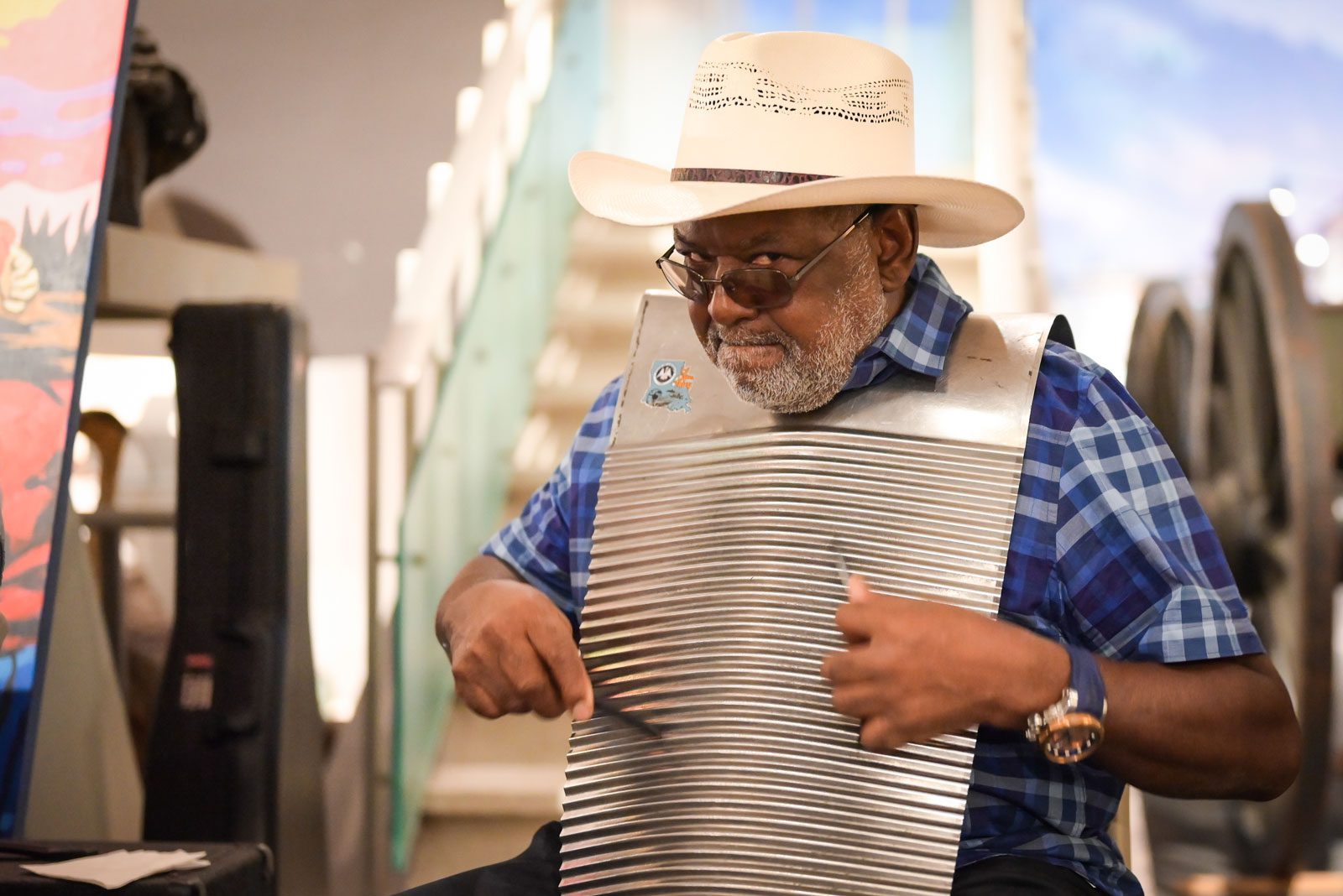
- Je ne sais quoi [gzin-nos-say-qua]: literal translation is, “I don’t know what.” But we use it to mean “a certain indescribable something special.” That’s what your visit to Port Arthur will be, cher. Come on down, and let the good times roll.
- Joie de vivre [jhwa-da-veev]: Joy of living.
- Laissez les bons temps rouler [lay say lay boh(n) toh(n) roo lay]: Let the good times roll. As the official Cajun Capital of Texas, this saying embraces the joie de vivre of Cajun life in Port Arthur!

